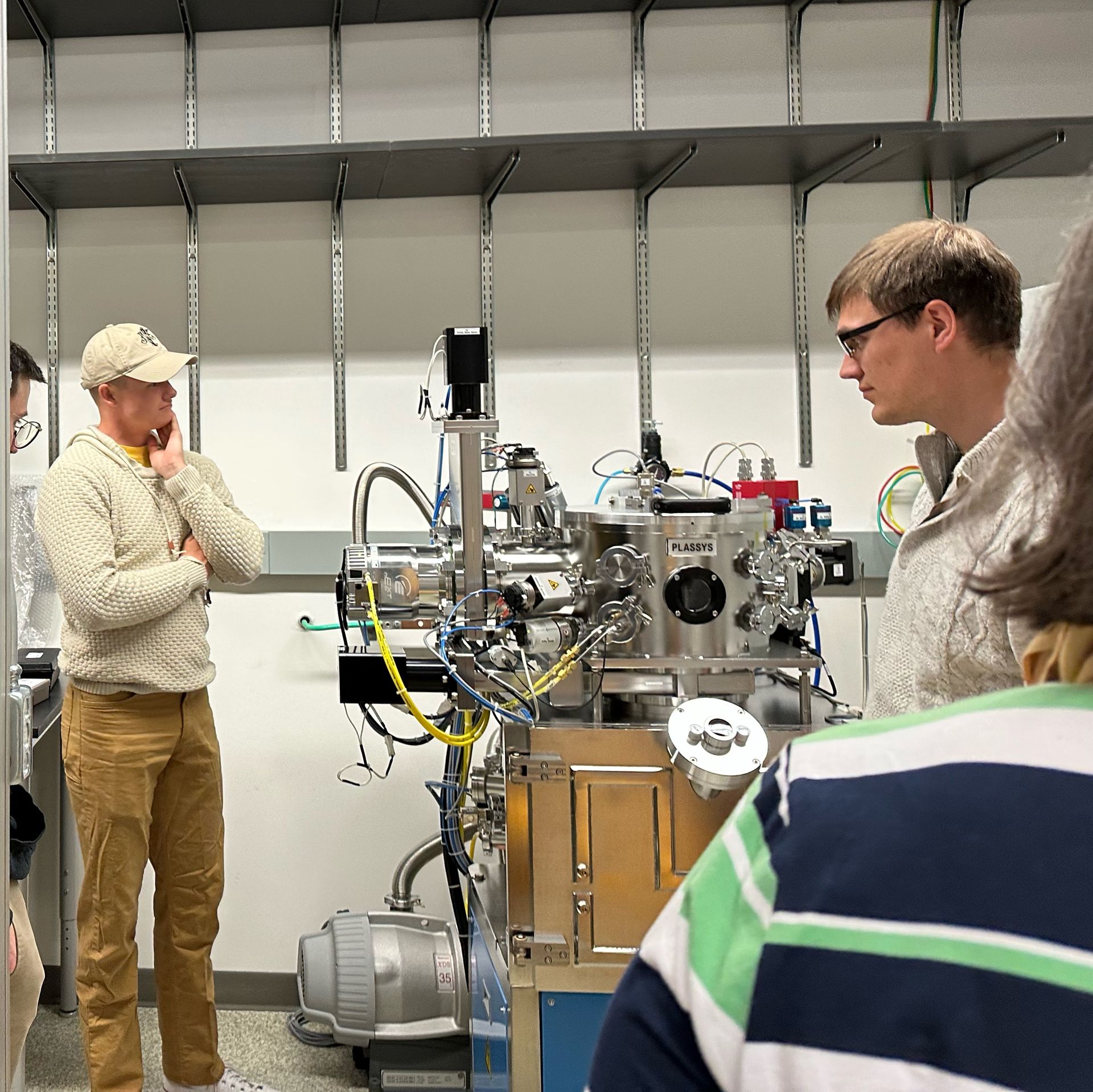Undergraduate

RQS Undergraduate Research: RQS-UR
RQS offers a summer undergraduate research program working closely with the Physics, Electrical and Computer Engineering, and Computer Science departments. Undergraduates are selected through a competitive application process and participate in a 10-week immersive quantum simulation research project within RQS research groups at the University of Maryland. Undergraduates also participate in other RQS programs, seminars, and networking lunches, and showcase their research through a poster session. Learn more about the summer 2025 RQS Undergraduate Research program here.
Applications for the summer 2026 RQS-UR program can be found on NSF's ETAP website: https://etap.nsf.gov/award/8352/opportunity/11526
Please feel free to send questions about the program to rqs@umd.edu.

University of Maryland Minor and Labs
Through cooperative efforts in curriculum design and coordination, RQS, the department of Electrical and Computer Engineering, the department of Physics, the department of Computer Science, and other campus partners at the University of Maryland will launch an undergraduate minor in Quantum Science and Engineering in 2024. The minor enrolls students from all majors and focuses on developing the mathematical, computational, and engineering skills required to enter the quantum workforce and pursue further study in the field.
RQS has taken part in the development of two undergraduate teaching labs which will give students hands-on experience with quantum hardware and software.
Quantum Software Lab
Developed by RQS senior investigator Xiaodi Wu and RQS graduate student Ethan Hickman, the Introduction to Quantum Software Laboratory is a hands-on course that teaches students how to translate theoretical quantum computing concepts into practical, executable programs on real quantum hardware. The course introduces existing programming tools for quantum machines and guides students through the challenges of implementing algorithms on imperfect, hardware-constrained devices.
Through a combination of lectures and intensive lab work, students program fundamental quantum information concepts, implementing protocols and algorithms such as chained teleportation, the Deutsch-Josza algorithm, Grover’s algorithm, and Bell tests. Having built confidence working with quantum toolkits, focus moves to understanding the constraints of NISQ devices. Students learn to characterize sources of noise and decoherence in quantum hardware and experiment with state-of-the-art quantum error reduction strategies. Throughout, the focus is on the impact of practical overheads that arise when moving from abstract quantum algorithms to real systems.
This course includes a capstone project where students design and implement a quantum application of their choosing, demonstrating their ability to work with realistic, imperfect quantum hardware. Overall, the course offers a comprehensive introduction to the realities of quantum software development and the tools needed to navigate a rapidly evolving technological landscape.
Quantum Hardware Lab
The Quantum Hardware Laboratory course introduces students to the foundational technologies that enable modern quantum devices, with a focus on hands-on experimentation. Working with state-of-the-art laboratory equipment, students explore core principles behind quantum computing, quantum communication, and quantum sensing. Experimental modules guide students through practical techniques such as laser optics, microwave control, optical detection, and the characterization of quantum states in solid-state platforms. These experiences help students connect abstract quantum mechanical concepts to the real behavior of quantum objects, photon-based communication channels, and quantum-enabled measurement tools.
A central focus of the course is understanding how quantum hardware operates in practice, from interpreting the data produced by quantum experiments to characterizing and stabilizing sensitive equipment. An RQS graduate and undergraduate design team led by RQS lead investigator Alicia Kollár developed two experiments for the course, a Michelson-Morley Interferometer experiment and a Vector-Network Analyzer (VNA) experiment. Students use the interferometer to explore the interference of light as a classical and quantum phenomenon. The VNA experiment allows students to characterize microwave resonators, which are important devices for storing, manipulating, and measuring qubits. By the end of the course, students gain both a deeper conceptual understanding of the field and practical laboratory experience, preparing them to further engage with emerging quantum technologies.

Quantum Leap Career Nexus
Held for the first time in September 2024, the Quantum Leap Career Nexus (QLCN) is an annual networking, recruitment, and mentorship event for careers in the quantum industry. Featuring a career fair, workshops, keynotes, and other networking opportunities, the QLCN brings together more than 250 undergraduates, graduate students, postdocs, and early career professionals with representatives from over 20 employers in quantum. Find out more here.
Oxford-style Mentoring at Morgan State University
RQS faculty have undertaken an intensive, multi-year mentoring program with undergraduate students from Morgan State University in Baltimore, Maryland. Mentees benefit from student-led inquiry into topics in quantum physics, connections to mentors’ professional and academic networks, professional development, and the development of lifelong relationships with their mentors.
